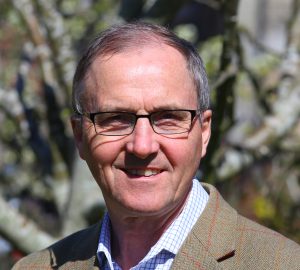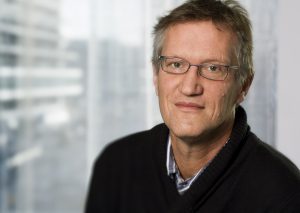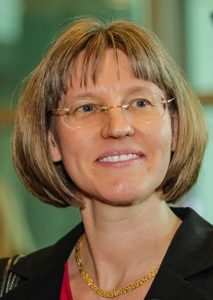December 6 at 12PM EST – Plenary Session on COVID-19
Sir Ian Boyd
Professor Sir Ian Boyd is a marine and polar scientist who was Chief Scientific Adviser to the UK Government on Food and the Environment. He is currently a professor at the University of St Andrews and the Chairman of the UK Research Integrity Office. He has served as an independent member of the UK’s Science Advisory Group for Emergencies (SAGE) during the COVID-19 pandemic.
He previously served as the first Director of the Scottish Oceans Institute, University of St Andrews, and as Director of the Sea Mammal Research Unit. Sir Ian is currently leading the move to sustainability at the University of St Andrews.
He spent 14 years leading a research programme in Antarctica studying the structure and dynamics of energy flow in the Southern Ocean and later specialised in the human impacts on marine ecosystems including fisheries and the effects of anthropogenic noise. While a science adviser in government he led the productions reports and strategies on waste and resources, bovine tuberculosis, pollinators and the effects of tree disease. He has received the Scientific Medal of the Zoological Society of London, the Bruce Medal for Polar Science and the Polar Medal. He is President Elect of the Royal Society of Biology and is also a Fellow of the Royal Society and of the Royal Society of Edinburgh.
Sir Ian originally graduated from the University of Aberdeen with a degree in Zoology and has a PhD from Cambridge University. He has also been awarded several honorary degrees. He was knighted in 2019 for services to science and economics in government.

Dr. Anders Tegnell
Dr. Anders Tegnell is the State Epidemiologist of Sweden, the Deputy Director General as well as the Head of the Department of Public Health Analysis and Data Management at the Public Health Agency. He is a medical doctor with a PhD in infectious diseases and a Master in Epidemiology from the London School of Hygiene and Tropical Medicine. Dr. Tegnell has extensive experience of leading different Swedish government agencies at different levels in the field of public health, disease control and preparedness for health threats, and has also experience from international work, for example from Laos in 1990-1993 (WHO) and from DRC during the Ebola outbreak in 1995.
Before this position, he was responsible for a department of the National Board of Health and Welfare dealing with knowledge management, developing guidelines and recommendations in all of the Boards areas of responsibility. He has worked with preparedness for health threats in different settings since the early 2000. He has among many others developed the pandemic plans in Sweden. He has been involved and managed health threats starting with the Ebola outbreak in DRC in 1995. He is a MD, a specialist in infectious diseases, has a PhD and a master in epidemiology from the London School of Hygiene and Epidemiology. He has published some 80 scientific papers.

Kimberly Thompson
Dr. Thompson’s research interests and teaching focus on applying risk analysis to improve global health, with a focus on children’s health. She seeks to integrate the best available evidence into health risk and policy models that inform strategy and management decisions. Dr. Thompson develops and applies quantitative methods for risk assessment and risk management with full consideration of the public policy implications associated with including uncertainty, variability, and complex dynamics in risk characterization. Drawing on a diverse background, she seeks to effectively integrate economic, social, political, legal, and technological issues into analyses that inform public policy and improve decision making in what she calls the “Age of Risk Management.” In 2000, while on the faculty at the Harvard School of Public Health, she created and directed the Kids Risk Project. In January 2009, she incorporated Kid Risk, Inc. as a self-standing, non-profit organization that focuses on improving children’s lives by understanding, characterizing, and communicating about the real risks that children face around the world and on empowering policy makers, parents, kids, and others to use the best available information to make better decisions. She received her B.S. and M.S. in Chemical Engineering from M.I.T. and her Doctor of Science (Sc.D.) degree from the Harvard School of Public Health. She is a Past-President and Fellow of the Society for Risk Analysis, which recognized her with its 2004 Chauncey Starr Distinguished Young Risk Analyst Award and its 2018 Distinguished Achievement Award. In 2008, she received the Jay Wright Forrester Award from the System Dynamics Society for some of the Kids Risk Project’s research on polio. In 2014, Dr. Thompson led the U.S. Centers for Disease Control and Prevention (CDC)/Kid Risk, Inc. team that won the Institute for Operations Research and the Management Sciences (INFORMS) Edelman Award, the leading global prize in Analytics and Operations Research, for its collaborative work supporting global polio eradication using a global integrated dynamics transmission, risk, and economic model. Dr. Thompson served as Professor of Preventive Medicine and Global Health at the University of Central Florida College of Medicine from 2012-2018, and as Chair of the US National Vaccine Advisory Committee from 2016-2018.
